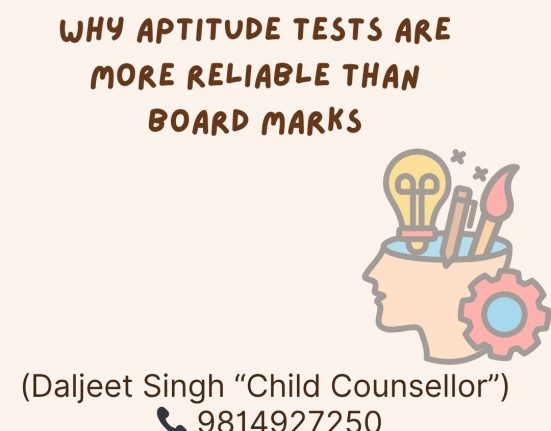As parents, we’ve all been there: our child is staring blankly at their textbook, fidgeting, or getting easily distracted by every little thing around them. In today’s fast-paced world, where screens and endless information compete for their attention, helping our children focus better on their studies can feel like an uphill battle. But what if I told you that the key isn’t necessarily more hours at the desk, but rather smarter, more effective study habits?
The old adage “work harder, not smarter” couldn’t be more true when it comes to learning. Here in Jalandhar, just like everywhere else, our kids are bombarded with distractions. So, how can we equip them to truly concentrate and make the most of their study time?
Here are some actionable strategies to help your child develop better focus and, ultimately, study smarter:

1. Create a Conducive Study Environment
This might seem obvious, but its importance cannot be overstated.
- Designate a “Study Zone”: This doesn’t have to be a separate room. It could be a corner of their bedroom, a quiet spot in the living room, or even a specific table. The key is that this space is primarily used for studying, signaling to their brain that it’s time to focus.
- Minimize Distractions:
- Digital Detox: Turn off notifications on phones and tablets. Better yet, have them put away their devices entirely during study sessions. If a computer is needed for schoolwork, ensure only relevant tabs are open.
- Clutter-Free Zone: A messy desk can lead to a messy mind. Encourage your child to keep their study area tidy and organized.
- Noise Control: While some children thrive with background noise, for most, a quiet environment is best. Consider noise-canceling headphones if household sounds are an issue.
2. Implement a Structured Study Schedule
Children, especially younger ones, thrive on routine. A consistent study schedule can help them mentally prepare for learning.
- Break It Down: Instead of one long, daunting study session, break it into smaller, manageable chunks. The Pomodoro Technique (25 minutes of focused work, followed by a 5-minute break) can be incredibly effective.
- Consistency is Key: Try to have study time at roughly the same time each day. This helps build a habit and signals to their brain when it’s time to switch gears.
- Incorporate Breaks: Regular short breaks are crucial for maintaining focus. Encourage them to move around, stretch, or do something enjoyable (but not overly stimulating) during these breaks.
3. Teach Active Learning Techniques
Passive learning (just reading notes or highlighting) is often ineffective. Encourage active engagement with the material.
- Ask Questions: Encourage your child to ask “why” and “how” questions as they study.
- Summarize in Their Own Words: After reading a paragraph or a section, have them explain it back to you or themselves in their own words.
- Flashcards and Quizzing: These are excellent for memorization and self-testing. You can even quiz them.
- Teach the Material to Someone Else: The best way to understand something is to teach it. Encourage them to explain concepts to you, a sibling, or even a stuffed animal!
4. Address Underlying Issues
Sometimes, a lack of focus can stem from deeper issues.
- Adequate Sleep: Sleep deprivation significantly impacts concentration. Ensure your child is getting enough age-appropriate sleep.
- Balanced Nutrition: A healthy diet fuels the brain. Avoid sugary snacks and processed foods that can lead to energy crashes.
- Physical Activity: Regular exercise can improve attention and reduce stress. Encourage outdoor play and sports.
- Screen Time Management: Excessive screen time can rewire the brain for constant stimulation, making sustained focus difficult. Implement healthy screen time limits.
- Identify Learning Difficulties: If focus issues are persistent and severe, consider consulting with a pediatrician or an educational psychologist. They might be able to identify underlying learning differences or attention disorders.
5. Be a Supportive Guide, Not a Taskmaster
Your role as a parent is crucial in fostering a positive attitude towards learning.
- Praise Effort, Not Just Results: Acknowledge their effort and perseverance, even if the results aren’t perfect. This builds resilience.
- Stay Positive and Patient: Frustration from your end can easily rub off on your child. Approach study time with a calm and encouraging demeanor.
- Model Good Habits: If you’re constantly glued to your phone, it’s hard to expect your child to focus on their studies. Show them what focused work looks like.
- Communicate Openly: Talk to your child about their challenges and successes. Listen to their concerns and work together to find solutions.
The Takeaway:
Helping your child focus better isn’t about forcing them to sit for longer periods. It’s about empowering them with the tools and strategies to engage more effectively with their learning. By creating a supportive environment, implementing smart study techniques, and addressing their overall well-being, you can help your child unlock their full academic potential – and truly study smarter, not harder.
Still struggling, Contact:
Daljeet Singh (Jalandhar)Counsellor9814927250






Leave feedback about this